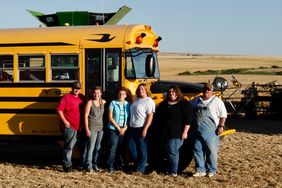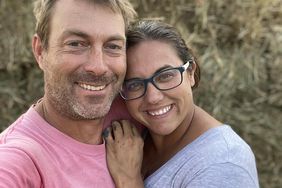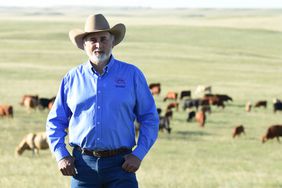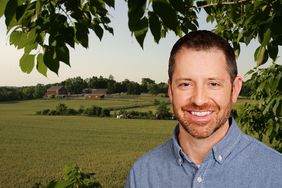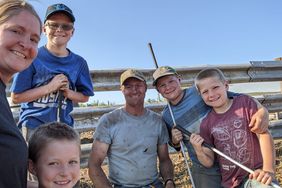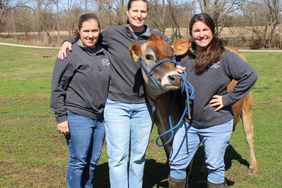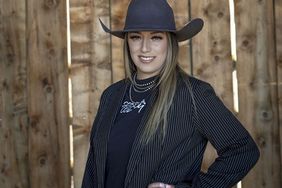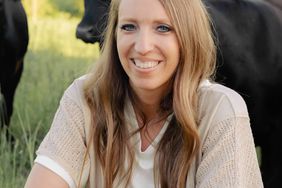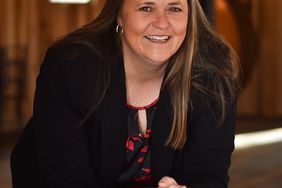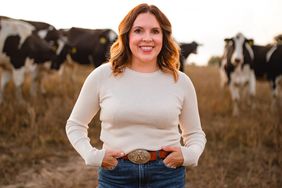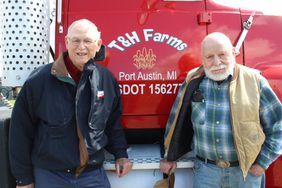:max_bytes(150000):strip_icc()/NovHometownHeroDurham-7664125563714ccd865cda5b2da5a977.jpg)
With a population just under 700, deep in fly-over country, Norborne, Missouri, is easy to miss on a map. But for residents of the town, the self-proclaimed “Soybean Capital of the World” is noteworthy for its strong sense of community.
A sixth-generation farmer, Kyle Durham has been a vital part of the town’s revitalization over the past 10 years.
“‘My family has been farming in the area since the Civil War, but the farm as it’s constituted now was really started by my grandfather after World War II,” Durham says. “I like to tell people I’m the third generation of lots of things. Not just here on the farm, but also the third generation to work on things like checkoff boards and county farm bureau president. There is that heritage.”
Today, Durham farms 2,500 acres of corn and soybeans. Following in his grandfather’s footsteps, he has served on nearly every level of soybean board, is an active member of the local farm bureau, and owns a woodworking and a tea-blending business with his wife, Courtney.
“Kyle has a hunting dog’s nose for leadership,” says Dan Carpenter, a seed sales rep and friend of Durham. “He’s been involved not only in the community, but a broad perspective of statewide organizations like the Missouri Soybean Association and Missouri Soybean Merchandising Council. He doesn’t shy away from any sort of leadership opportunities.”
Small Town Festival Gets New Life
Each August, Norborne triples its population as families from across the greater area trek to the Norborne Soybean Festival.
Durham’s grandfather was a founding member of the event in 1982, and Durham grew up attending the festival alongside his extended family.
“I grew up on a farm outside of town, you know, so we didn’t spend a whole lot of time in town,” he says. “The soybean festival was always that time when we got to spend two and a half days in town. It always came around about two weeks before school started, so it was kind of like the last event of summer. Those are the memories that stick with me.”
To many, the Norborne Soybean Festival seemed like it was on the decline when Durham joined the planning committee. As the town’s 150th anniversary approached, volunteer and monetary support were at a low.
“At that time, there were a lot of senior members of the community that were losing steam on keeping events like the festival going,” Carpenter says. “In 2018, a few younger people in the community got together and we decided that we wanted the event to go forward and thrive and prosper for the near future.”
Durham served as a leader for the younger crew, breathing new life into fund-raising efforts and developing social media plans to get the community involved. He’s the face of Festival Fridays on Facebook, a weekly campaign that aims to drive community engagement.
“As part of that, there’s rewards to the community for giving us feedback in the form of vouchers that are redeemable at the festival,” Carpenter says. “[Durham] was very integral in getting that started, and I think that’s allowed us to be in touch with the community when it comes to planning and scheduling the entire thing.”
Fund-raising efforts were also enacted, not just in Norborne, but in other surrounding small towns that did business there. Connecting businesses with the town has not only improved the festival, but also made the community stronger.
“I think the more people can communicate openly and freely with the people they do business with and the people in their community, the better off places like Norborne are,” Carpenter says.
The reinvigorated festival has also shifted the mind-set of many community members.
“At the heart of it, we’re all just trying to not only maintain but build community,” Durham says. “There are so many forces in the world today that want to pull us apart. The onus is on us to put on a quality festival that allows people that opportunity to connect, encourages them and reminds them of the tradition and the history of the past.”
:max_bytes(150000):strip_icc()/NorborneSoybeanCapital-864b0d2b2e2c49d3ba1c21bf392375f9.jpg)
Town PR Person
Perhaps unknowingly, Durham has become a spokesperson for Norborne. In 2021, Durham partnered with Norborne’s then-mayor Jake DeMint to campaign for the town’s part in the Missouri Humanities Small Town Showcase. The program aims to highlight five small towns, chosen in a statewide popular vote, in a podcast and video project.
Durham gave the Missouri Humanities film crew open access to the town, featuring not just the soybean festival but also the community Norborne has fostered.
“He’s not a public official; he’s just a farmer that really cares about Norborne,” says Caitlin Yager, the program director for Missouri Humanities. “As busy as he is as a farmer and a small-business owner, to dedicate the amount of time that he does to planning this festival is such an asset. It’s very clear that everybody is so appreciative of him and really feels like he is a treasure and an asset to the community.”
To Durham, the programming was an opportunity to showcase why rural communities are worth visiting.
“It gave us an opportunity to show what we value and who we are,” Durham says. “Don’t overlook us in rural America because there are a lot of treasures yet to be found.”
Beyond special programming and yearly festivals, Durham embodies the energy of Norborne, say community members such as Tysen Bibb, the pastor of Trinity Lutheran Church.
“When you have citizens like Kyle who love Norborne so much, in some ways they become a living billboard for what’s so great about the area,” Bibb says. “So much of what I think our country needs is actually found in small towns.”
Growing Up Rural
As urbanization impacts small communities across the country, leaders such as Kyle Durham who inspire rural revitalization are more important than ever. However, even he wasn’t immune to the call of the big city as a teenager.
“I didn’t appreciate [Norborne] when I was young,” Durham says. “The thought was you’d go off to the big city and make something of yourself.”
Durham studied agricultural journalism at the University of Missouri before returning to the farm 20 years ago.
“As I’ve been back and been involved in different things, I would say there’s actually more opportunity in rural America for a young person to come out and take hold of whatever vision that they want to do in service to others and really run with it,” Durham says.
Watching his own children grow up in Norborne has had a big impact on Durham.
“I want to make our community the kind of place where even if the kids don’t come back to farm, they see this is some-where that has traditional values, deep roots, and the services and amenities they want when they look at a community to grow a family in.”
:max_bytes(150000):strip_icc()/headshot-bc4ff3c0c50c4e1cb8156ba02e8bf428.jpg)

